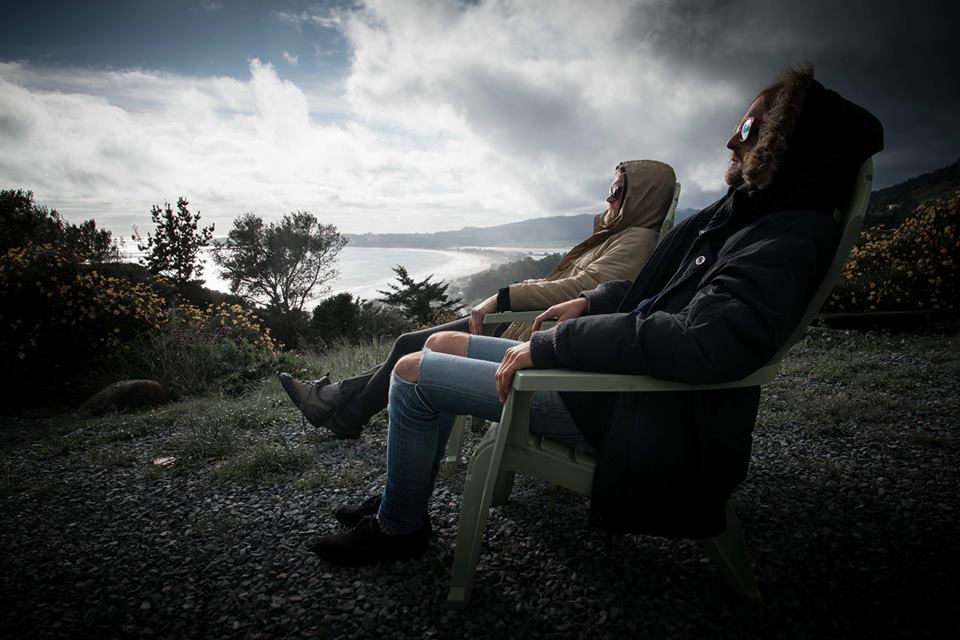
San Francisco-based folk, blues and rock duo Two Gallants have spent the past dozen-plus years defying the limitations that come with that size of band with increasing acrobatic and dynamic tenacity. For long-time childhood friends Adam Stephens and Tyson Vogel, who played together since they were 12, entering their thirteenth year together as a band is no excuse to slow the pace down.
On Feb. 3 they released their fifth studio (and second on ATO Records) album, We Are Undone, and are setting off on a lengthy tour across the country and Europe. The band spent a month with producer Karl Derfler, best known for his work with artists like Tom Waits, at Panoramic House in Northern California to record the album. The album showcases the tight finesse chemistry they’ve built over the years and a continuing mature outlook in songwriting with lyrics that try to make sense of the shifting nature of the world.
Prior to the release of the album and the start of the band’s tour, Jambands.com caught up with Stephens to find out more about this latest chapter of the band. He starts out by explaining, “We haven’t been doing very much the past year. We recorded the record. It took a little bit longer than we planned for it to come out. So we’ve been laying low and not having too much excitement.”
Was there a reason the album took longer?
It was just one of those things that happens, that you’re not always in control of. And there were a lot of people involved. We wanted the record to come out sooner and it just didn’t work out that way.
Why did you guys decide to title the album We Are Undone ?
It kind of implies the feeling of contradicting or something. It has multiple meanings to me, about us as a species running headlong blindly into some sort of future. It’s a constant desire to keep growing and running and expanding, like without any real objective in mind. It came out at the same time when everything is unraveling in the world around us. It’s falling apart, which is doing the same shit we’ve been doing for centuries now.
Was there a specific point where you felt this?
I guess ever since I developed an awareness of my surroundings and interest and concern for the world. I don’t really remember when that was but pretty much ever since then.
With that kind of subject matter, do you think the lyrical content is more serious then past albums?
No, I don’t think more serious, necessarily. It has a different subject matter but as a band I think we’ve always been a little too serious perhaps to a fault at times. So I don’t think it’s really any different kind of attitude. I just think thematically it’s a little different from our past albums.
What typically makes a song complete for you? What are you usually looking for songs to do? Has that changed since you started?
I don’t really think of songs as ever being complete. Completion is not something I look for. There comes a point where you need to record them, so settle with whatever state they’re in and they’re something you can be happy with for awhile. I don’t really use the word complete when describing songs. I don’t ever think of them as being done.
The new album has a nice balance between rockers and ballads. Do you set about with that kind of thing in mind?
I take it at a song-by-song basis. The songs just arrive and make themselves what they want to be. And if it’s not working out, like if it’s not a good song and not worth it, then it probably won’t end up on the album. But I don’t think whether it’s a balance between loud and quiet songs, that doesn’t really determine if it’s going to be used.
With the recording of the album was it pretty similar to past sessions or were there anything different this time around?
Yeah it was pretty different. It was the first time we ever recorded not in a city. It was recorded in the past in San Francisco or Oakland. We recorded this up north on the coast. And we were living and staying in a studio so it was a lot more of intensive, involved experience, which I think we both enjoyed quite a bit.
How did Karl help push or influence the band’s sound during the recording?
He didn’t really push us in any way. I just think he understood pretty early on our sensibility and our interests as far as our tastes. He had a pretty good understanding of what we wanted the album to sound like. He supported us in most of what we did and we put our faith in him in a lot of ways. It was all together a pretty healthy experience, healthy situation or condition in which to record.


No Comments comments associated with this post